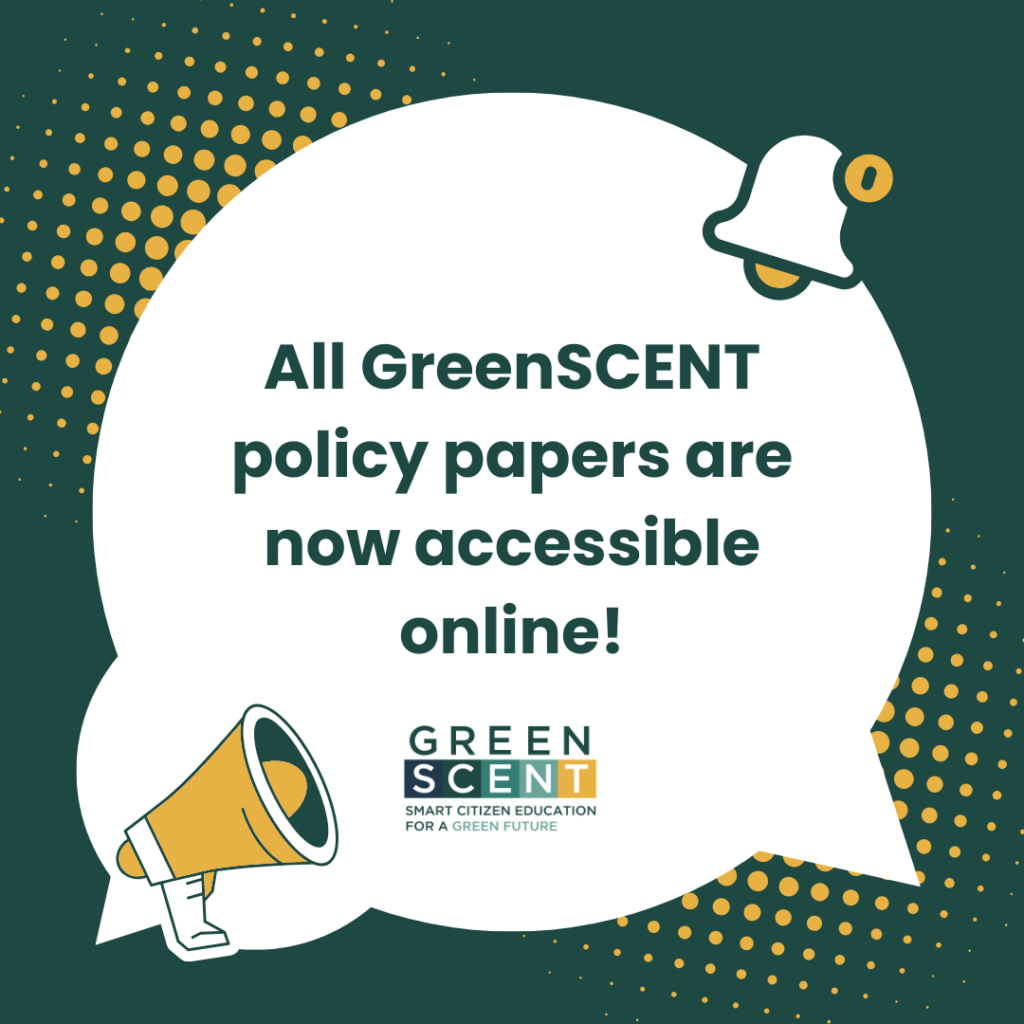All GreenSCENT policy papers are now accessible online!
Chiara Gunella (TransMedia Catalonia) – 11th of November 2024

We are thrilled to announce the release of our three GreenSCENT policy papers! Each paper addresses key aspects of environmental education, aiming to make it more inclusive, engaging, and action-oriented. Here’s an overview:
Designing Environmental Education with Young People for Young People
Authors: Ditte Burmeister, Sif Juhl Jacobsen, Maria Åkerman
This policy paper emphasizes the transformative power of youth involvement in environmental education. It discusses the benefits of co-creation, where young people actively participate in shaping educational resources, making them more engaging and relevant. The GreenSCENT Youth Design Assembly, which involved 56 young people from across Europe, is highlighted as a successful example. Participants contributed feedback that led to concrete suggestions for curriculum enhancements and new pedagogical tools. The paper also outlines the advantages of youth engagement, such as increased motivation and the development of environmental agency, and offers policy recommendations to support and institutionalize student-led educational initiatives. Read the full paper here.
Leaving No One Behind in Environmental Education
Authors: Sarah McDonagh, Chiara Gunella, Pilar Orero, Marta Brescia Zapata, Anna Matamala
This paper focuses on the critical importance of inclusivity and accessibility in environmental education to ensure climate justice. It highlights the need for educational resources and spaces that accommodate diverse backgrounds, identities, and abilities. The concept of Universal Design is discussed, advocating for educational materials that are accessible to all. The paper emphasizes the disproportionate impact of climate change on marginalized communities and people with disabilities, and it recommends concrete steps, such as funding inclusive educational materials, developing accessible curricula, and creating partnerships with organizations dedicated to diversity. The goal is to provide equal opportunities for everyone to engage meaningfully in environmental education. Read the full paper here.
Towards Transformative and Emancipatory Pedagogies
Authors: Loukas Katikas, Maria Åkerman
This paper explores action-oriented and transformative pedagogical approaches that empower students to engage in sustainability practices. It argues for moving away from traditional, information-delivery models to methods that build students’ skills for taking real-world environmental action. The paper details practical approaches like collaborative real-world projects, vision-building exercises, and systems analysis, all aimed at developing students’ sustainability competencies. Challenges faced by educators, such as resource constraints, lack of technical support, and difficulties in community engagement, are discussed. The paper also provides policy recommendations to support schools and teachers in implementing these innovative educational methods, including establishing environmental education ecosystems and funding community-oriented projects. Read the full paper here.
We encourage you to explore and share these insights to foster meaningful change in environmental education!
